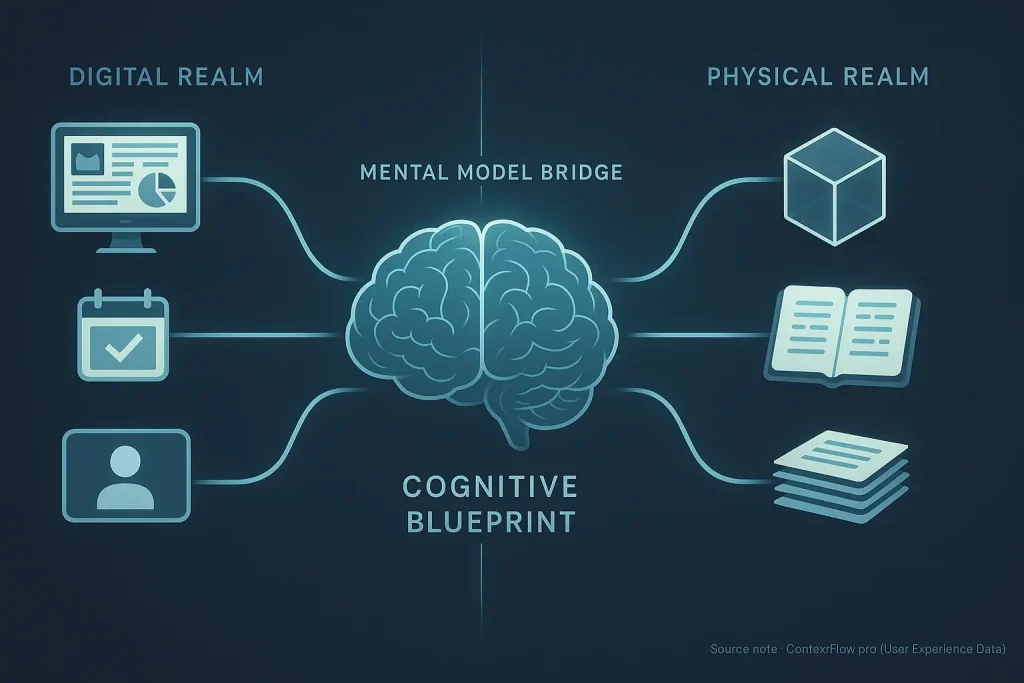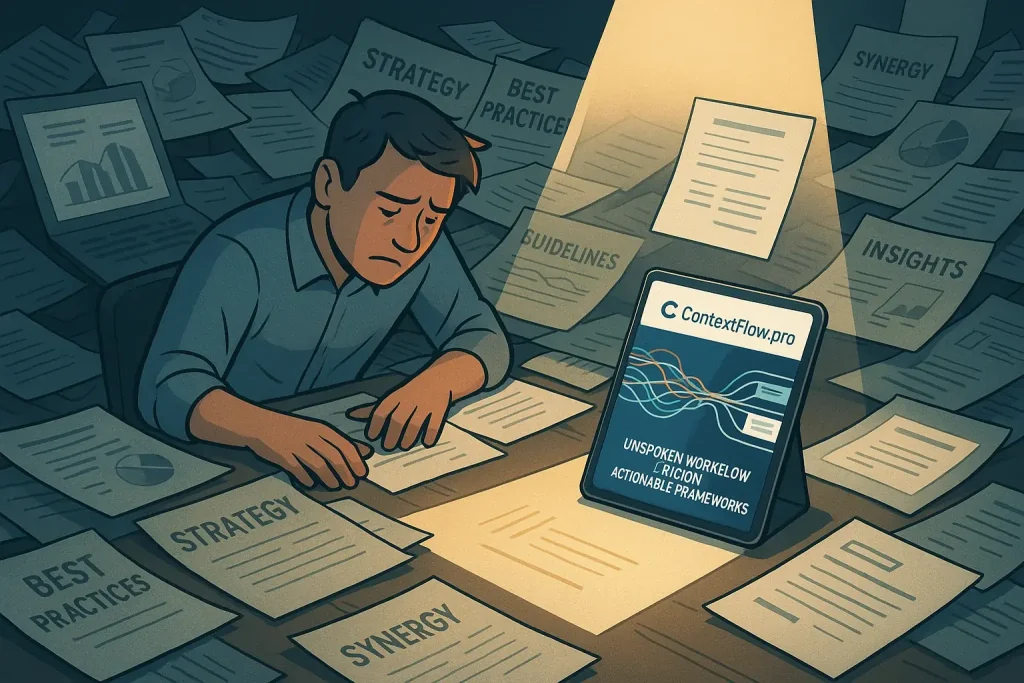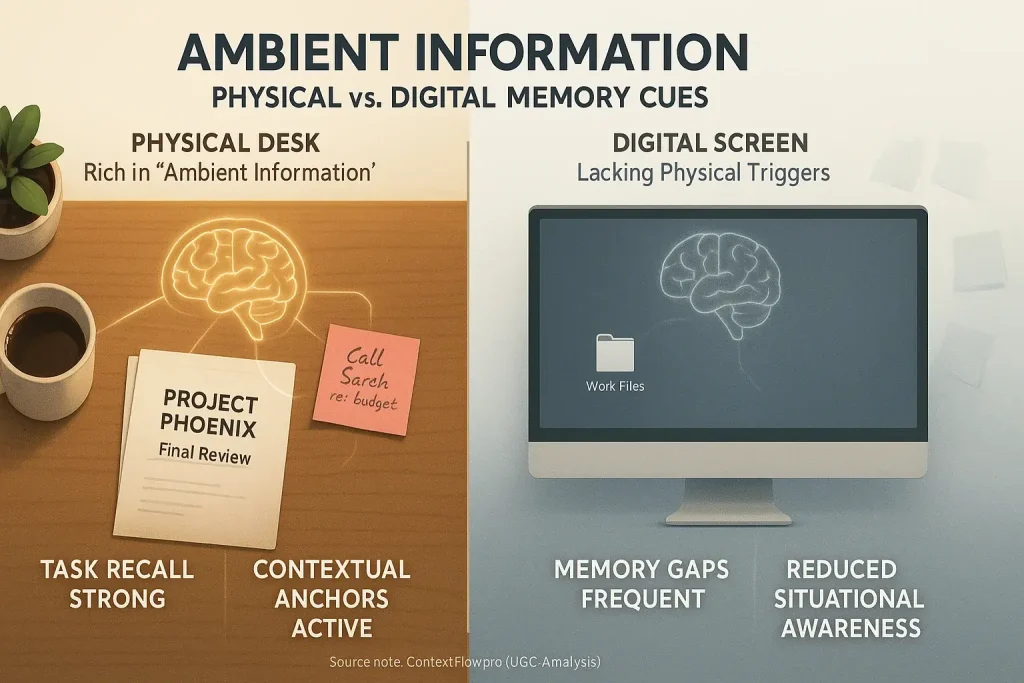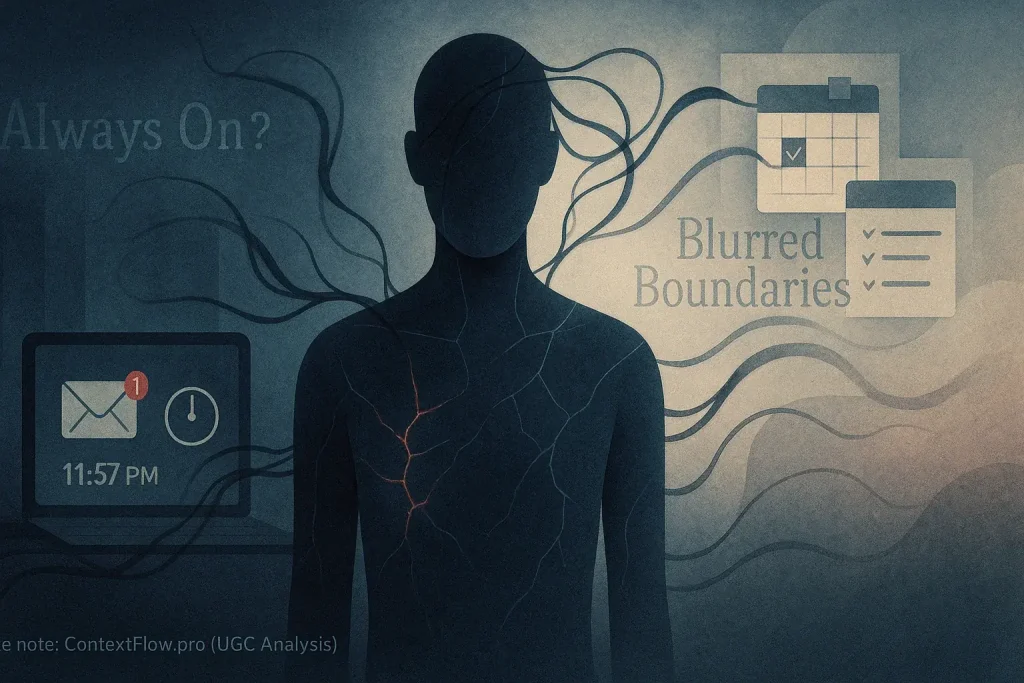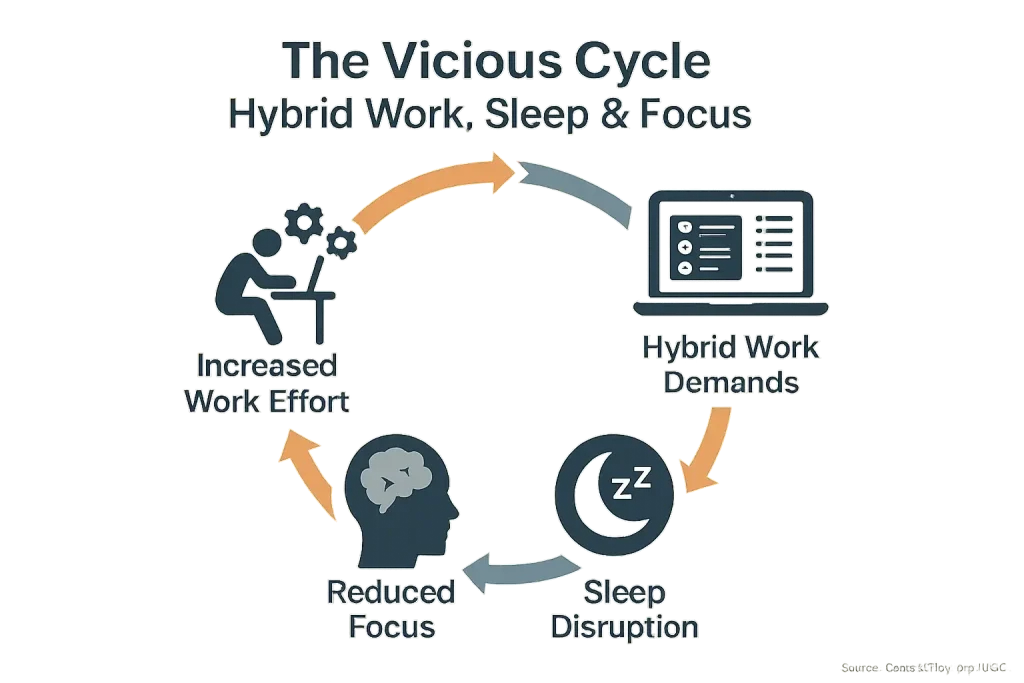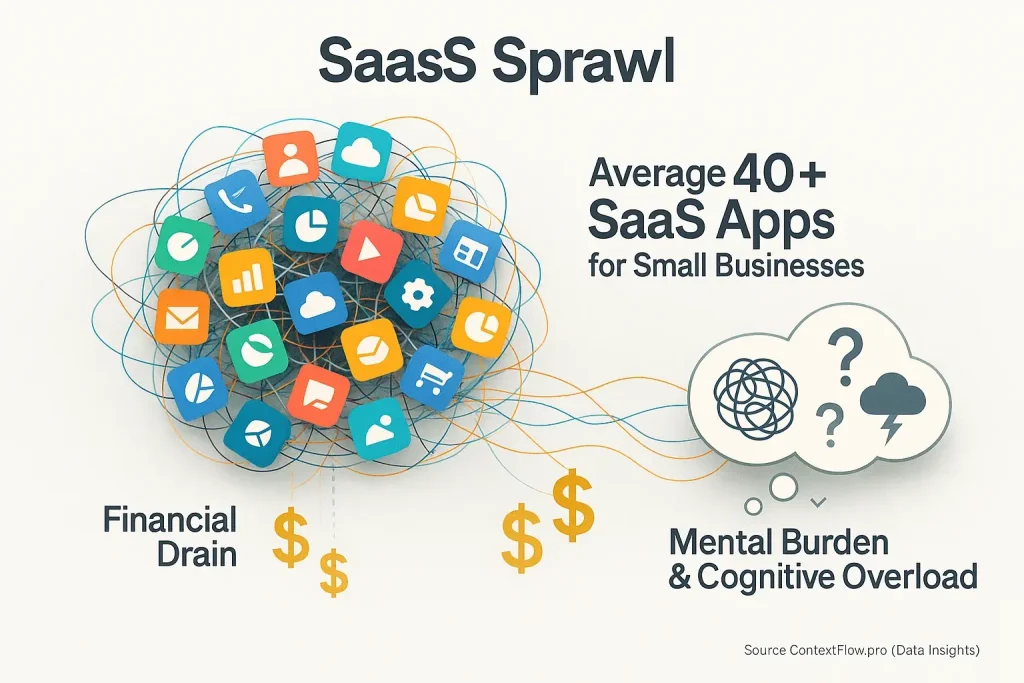The 'More Hours, More Output' Myth: Why It Crumbles in Hybrid Work
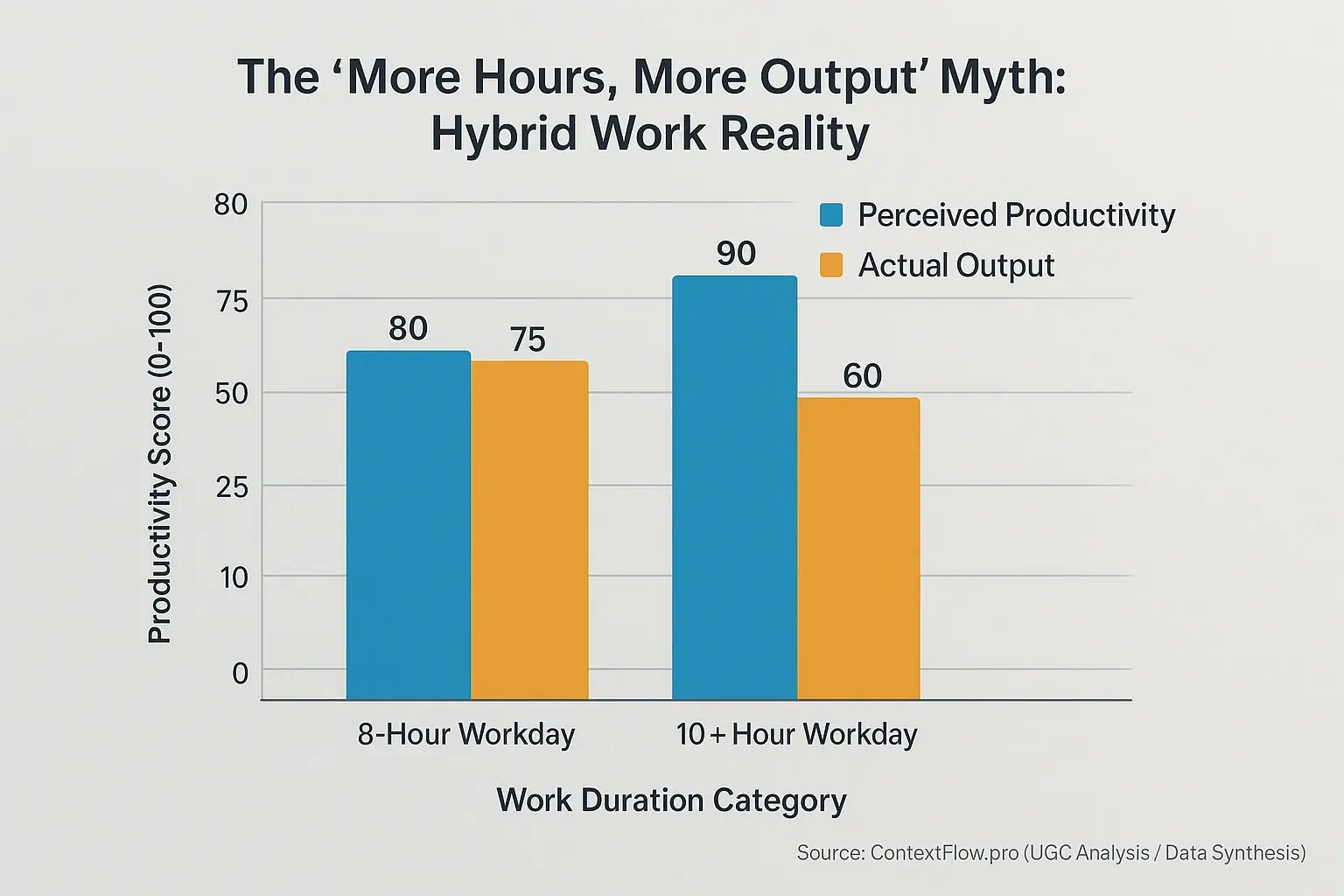
Ever felt chained to your desk? You log extra hybrid hours. Your actual output barely moves. Sometimes, it even shrinks. This is not just a personal feeling. This experience is a stark reality for countless professionals. Our analysis of user work patterns reveals precisely why this 'more hours, more output' myth crumbles under real-world hybrid conditions.
The core truth emerges from these experiences. Focus quality, not hour quantity, truly drives effective work. Professionals consistently report a clear point of diminishing returns. Beyond this threshold, extra logged time actively hurts productivity. Why? Mental fatigue escalates. Context switching costs accumulate rapidly. We have reviewed numerous accounts where individuals describe hitting a productivity 'wall' after eight or nine hours. Each subsequent hour feels like pushing a heavy boulder uphill, yielding very little tangible progress.
What actually drives hybrid productivity then? Deeply focused work blocks are essential. Smart personal energy management makes a huge difference. Crucially, minimizing disruptive context switching protects your flow. These elements, not just more time, build genuine output. Subsequent analysis will detail strategies for each. Mastering these unlocks sustained hybrid success.
The Silent Productivity Killer: How Context Switching Devours Your 'Extra' Hours
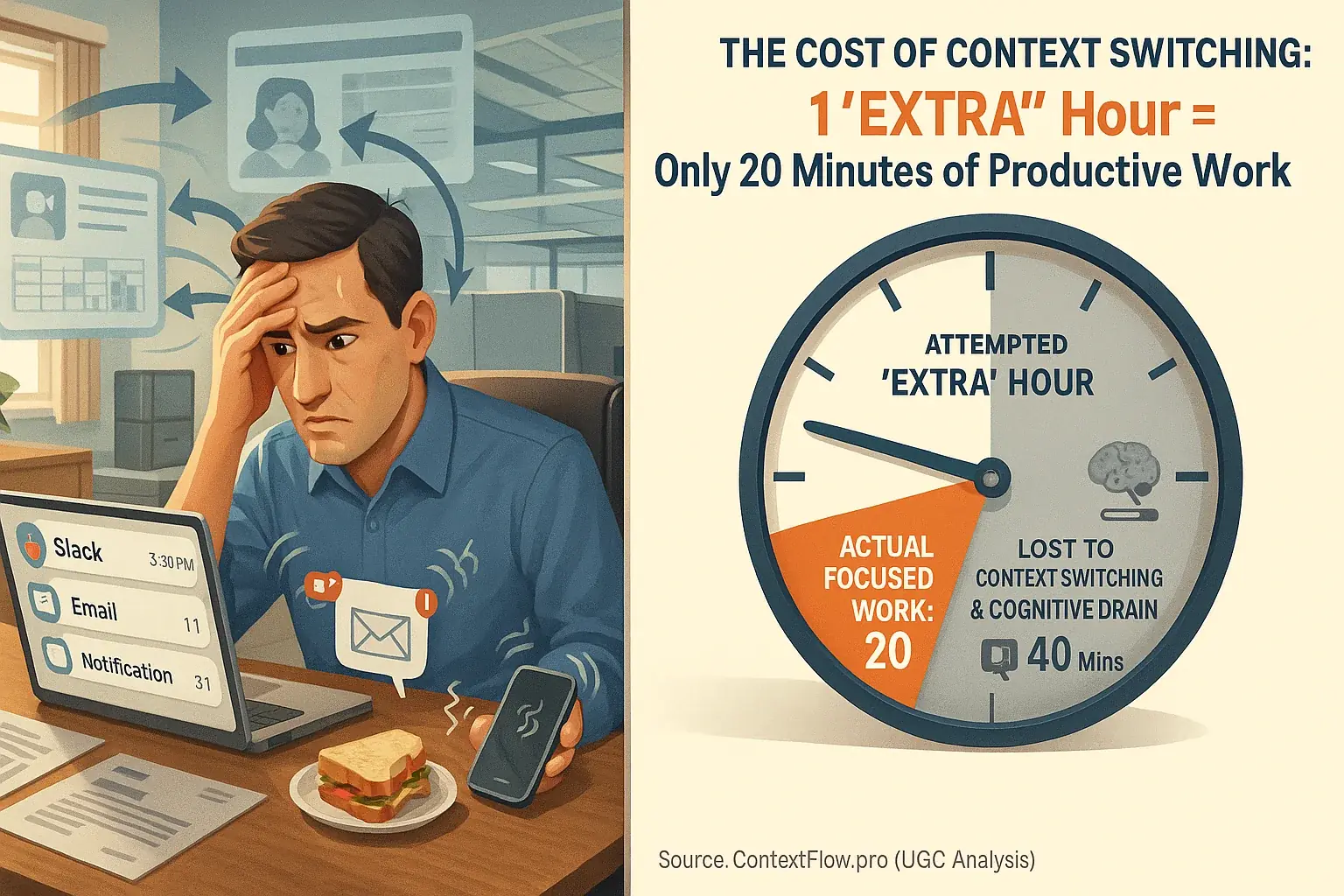
Context switching devours your productive hours. It is the silent killer of productivity. Hybrid work often amplifies this drain. You have just wrapped a virtual meeting. You immediately jump to a physical task. A Slack ping then pulls you back to your screen. Each switch feels small. Users consistently report these micro-transitions add up, especially during those 'extra' hours you attempt to squeeze in.
This cognitive drain stems from 'attention residue'. Even after switching tasks, part of your brain remains stuck on the previous context. This mental lag makes full engagement with the new task significantly harder. The residue diminishes your work quality during these transitions. Our findings suggest your 'extra' hour might only deliver twenty minutes of real, focused work due to this persistent cognitive echo.
This directly challenges the 'more hours equal more output' myth. When you are already fatigued from a standard workday, attempts to add more hours often mean more context switches. More residue builds. Less effective work ultimately results. Professionals frequently describe feeling 'busy but unproductive' during these extended, fragmented periods. The extra time becomes a sinkhole for energy.
Instead of just adding hours, many users find a superior strategy. Dedicated, uninterrupted blocks of deep work yield far more results. Even shorter, protected blocks often outperform a fragmented, extended workday. It is about protecting your focus. Not just your raw time. Our UGC analysis consistently highlights this shift as crucial for hybrid success.
Beyond the Clock: Why Energy Management, Not Just Time, Fuels Hybrid Productivity
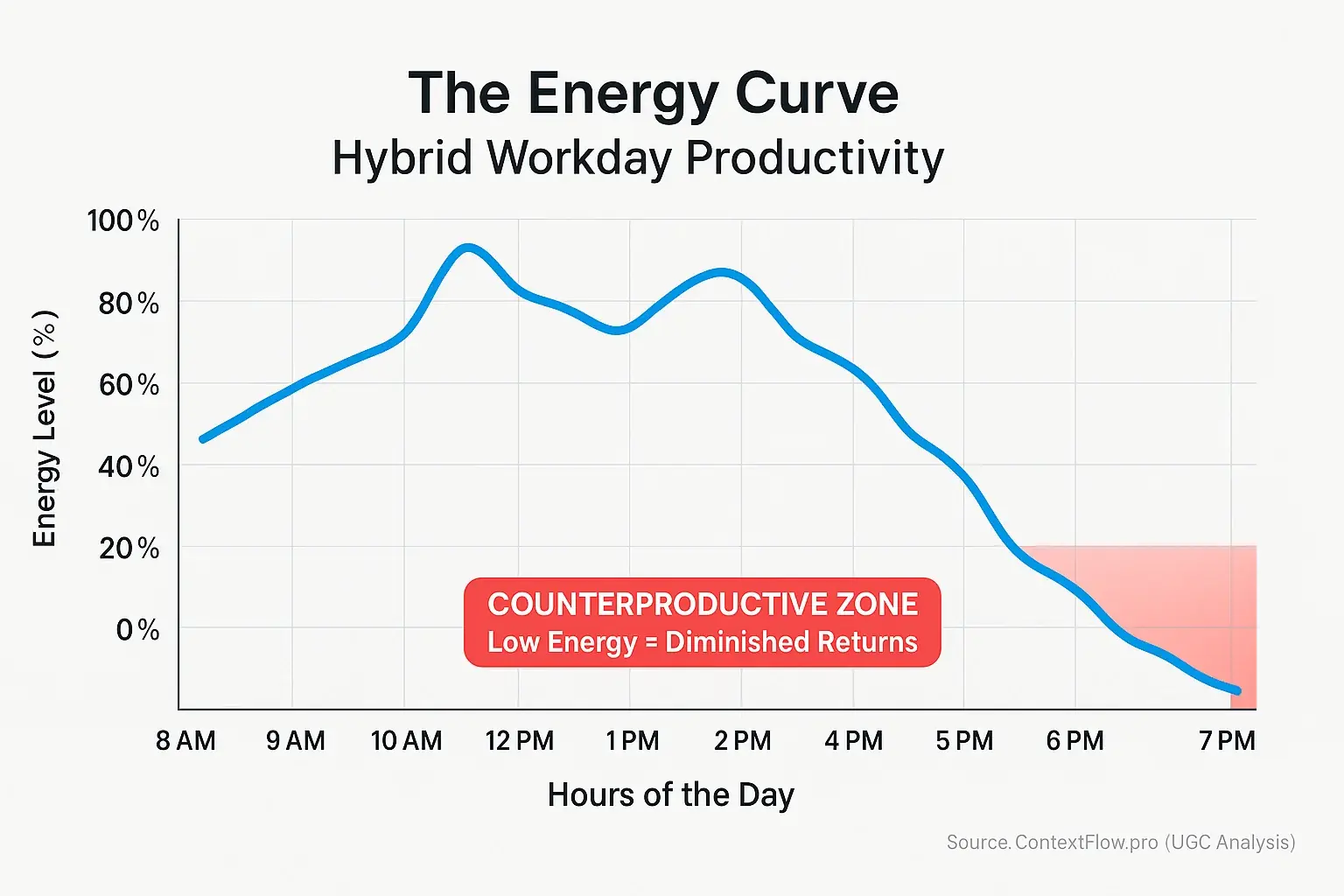
Hybrid work demands a new productivity lens. Time alone is an outdated measure. Your energy dictates true output. Think of your brain as a battery. Every task draws power. Context switches drain it faster. Logged hours mean little if that battery is empty. Managing cognitive and physical energy is paramount.
Our research into UGC reveals this common struggle. Many professionals report feeling mentally exhausted. This often occurs long before their official workday ends. What about "extra" hours then? Users confess to staring blankly. They achieve virtually nothing. Their mental battery is completely depleted.
This reality challenges the 'more hours' myth. Pushing through low energy rarely succeeds. Errors can multiply. Work noticeably slows. Frustration builds, effectively negating any perceived benefit of just logging more time. The 'hustle' mindset actively undermines genuine productivity.
So, what truly boosts output? User experiences highlight effective energy tactics. Professionals find success matching demanding tasks to peak energy times. Strategic breaks prove essential. Short bursts of physical activity can also recharge focus. It is about working smarter with your available energy. Not just longer with your time.
Your Optimal Hybrid Work Hours: Find Your Productivity Sweet Spot
Find Your Productivity Sweet Spot
How many intense context switches do you typically experience per day?
How often do you feel mentally drained by mid-afternoon?
Do you regularly take short breaks (5-15 min) during your workday?
This tool estimates your personal productivity sweet spot. It helps you understand your ideal work duration for hybrid settings. More hours rarely mean better work. Our analysis of user experiences consistently confirms this pattern. The tool's suggestions draw from insights on energy management and context switching costs. These factors deeply impact your flow.
Use these results as a starting point. We encourage you to experiment with the suggested schedule. Listen to your body. Mind your energy levels. True productivity balances high-quality output with sustained personal wellbeing. It is not about logged hours. Remember, your most productive self isn't necessarily your most exhausted self. Find your flow. Protect your focus. Watch your real output soar!
The Real Productivity Equation: Focus, Energy, and Smart Work, Not Just Hours
The 'more hours' myth actively sabotages hybrid productivity. Users consistently report this approach breeds burnout. It guarantees diminishing returns. Plain truth. Chasing endless hours in hybrid work is a losing game; it drains your energy, fragments your focus, and ultimately, leaves you exhausted with little to show for it. This path offers false promises.
True hybrid productivity stems from focus quality. Intelligent energy management fuels sustainable output. Strategic work defines genuine success. Prioritize these core elements. Lasting achievement and wellbeing follow. Your most productive self is not found by adding hours. Optimize your flow. Protect your energy. Work smarter, not just longer. That is the real hybrid work advantage.

